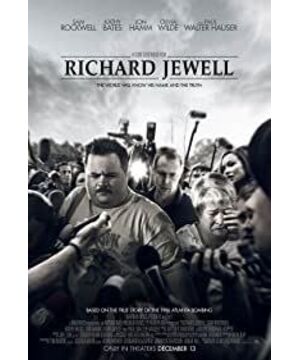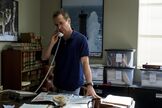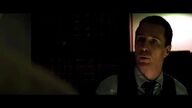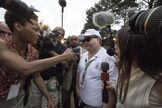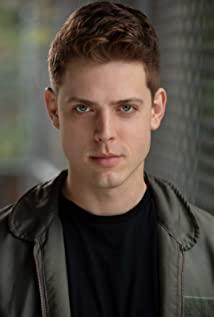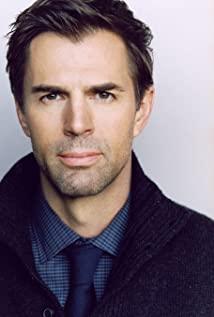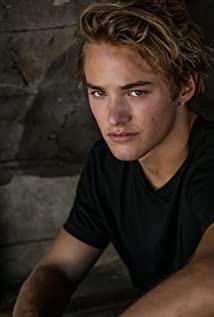Eastwood directed a biopic at his 89-year-old. The story was adapted from the bombing of the Centennial Olympic Park in 1996. At that time, Jewell, who was a security guard, was regarded as a hero by the media for discovering a backpack bomb deployed by terrorists. But three days later, the "Atlanta Constitution" put Jewell on the headlines based on a source and described him as a "self-directed and self-acting bomber." Despite the efforts of his lawyers and his mother, Jewell was finally redressed. Depressed after 12 years. The following content will explain to you, in my understanding, how Dongmu borrowed such a realistic subject matter to express his aspirations and what kind of appeals were expressed. Dongmu became famous in Hollywood in his early years with crime films and westerns, but the old man changed his style in his later years and shot a number of biographical films: "Captain Sally", "Hoover", "Success in Humans", "Mule" and "American Sniper", every outstanding director can find some similar expressions in his works. Dongmu and his "Elegies" are no exception. Most of the characters in Dongmu's biographical films have the same characteristic, that is: strong business ability. Whether they are soldiers, drivers, or security guards, they are all conscientiously doing their jobs, hoping to contribute their own reliable labor force to the society and the country, but despite this, these archetypes never have a benevolent ending. . All "badness" seems to come from "family", "system" and "society", but if we trace the roots, all these fatal factors are derived from their "rules and disciplines", "work without complaint", and "respect". Isn’t this the so-called "American spirit" that the Americans and the US government have been promoting? But why did these people who earn a living by their own ability end up like this? I don't want to and cannot generalize all these personalities, but for the "Juvelle" under Dongmu's lens, it is public opinion, capital, truth, populism, honor, status, and public power. Why would an upright red-necked American die in the United States? Why would a patriot be put on the top hat of "terrorism"? Why would a person who believes in respect for the organs of power be perverted and planted? These are not only the questions raised by the movie, but also a resounding home run by Dongmu standing in the right-wing camp. Why? I pondered this question for a long time, and finally decided to answer it in one sentence: Because Jewell is the "minority". After the 9/11 incident, the U.S. authorities allocated a large amount of national resources to combat terrorist and criminal activities, and at the same time established more laws and regulations to protect the country. Time has passed with national security. When these so-called terrorist organizations died and collapsed, their use of combating terrorism to interfere with other governments has evolved into political excuses and war justice. The US media has also reported and published on a large scale. The deeds of American troops in other countries. In such an atmosphere of public opinion where “terrorists” are no longer “terror”, the citizens are more numb to the definition of “terrorism”, but capital is more sensitive to it. When the media realize that they can rely on “terrorism” "In order to gain attention, competition within the industry will directly lead to the desire for "hot spots" in the news to gradually exceed the "truth". Although the 9/11 incident occurred five years after the bombing, the Americans' demands for "explosive news" have far exceeded the bombings. When capital comes so cheap, when the promotion path in the industry becomes more and more invented with the improvement of the social system and capital circulation system, those who seek to exchange their sweat for results will have their lives and even their lives squeezed. What Dongmu wants to ironically is not the set of rules itself, but every individual who stands behind the rules and allows them to develop, and the United States of America that consists of them. In this systematic excess of rules, freedom has become a laughing stock and public power has become a display. This is the "minority" I mentioned. There are fewer and fewer people who love this country, so those who still hold stupid loyalty to the country and the power organs will be squeezed out by those who are full of fame and wealth. , Exploited, powerful people will quietly eat away the weak, and the weak will continue to climb up on the food of "patriots" like "Jvere". It was especially absurd that Jewell’s mother begged the president to help her son clean up his wrongdoings at the press conference. I couldn’t help but think of the FBI director who was able to control the five presidents for 48 years in the "Hoover Biography" by collecting lace news. In Dongmu's eyes, supreme power is nothing more than a "house of cards" built by capital and power. They can't let go of their lofty position, like the Catholic Church of the Americans, and pray with you sincerely. Patriotism is no longer helpful, because the country you are rushing to can already betray every one of his ministers for "eyeballs", "hot spots", and "hot spots". They don't need patriots, they only need pawns who can help them. . As the lawyer said to Jewell: The people outside the window you claim to trust are wolves and tigers who want to devour you alive. In this era, heroes are also not needed. When Jewell became famous, apart from sporadic media interviews, only an author who wanted to write a fake biography came to visit him. And when the "Atlanta Constitution" claimed that Zhu Wei After Er was listed as a federal suspect, an overwhelming array of media reporters and law enforcement agencies surrounded Jewell's home. In the United States, there are all kinds of heroes who receive commendation every day, but the wicked are becoming rarer. The flow and popularity are naturally more eager for wicked people than heroes. The value of heroes may have been squeezed in the "flag of fathers". It's done. In addition to heroes, Jewell has always been a loyal person. He carefully observes the needs of others in the company. He checks the bedtime at school. He checks the bag according to the security rules at the Olympic Games. He cooperates with the FBI investigation according to the rules. , But he wouldn’t do anything outside of the rules, even those investigators he believed in asking him to sign a document he didn’t approve of, but it’s such a person who does things according to the rules. "Death" is in the hands of a group of people who don't know the rules: FBI agents who lure confessions, inspectors who disclose information to their mistresses, female reporters without professional ethics, and editor-in-chief who do not hesitate to get the truth on the front page. Obviously, rule-speakers are "rule-killed" by those who don't, those who believe in the state are shattered, and those who respect power are persecuted by power, so what is the use of rules for these rule-speakers? The problem is back to the beginning. There is no problem with the rules themselves. The problem is that those rules are used and coerced. This is so that pure talents will be swallowed up by this no longer pure society. This country was originally created by ancestors who used their own labor in exchange for fame, but now people who want to rely on evil ways to achieve a class leap have become the mainstream culture of society, so capital is strong enough to wash away "terrorism." The crime of "makes it a carrier of social thoughts." Such a big carrier can't tolerate sentimental and righteous people, and a lawyer can also be a good example. He originally worked in a large firm, but later he decided to go it alone because he didn't want to be blamed by others. When facing Jewell, the lawyer’s first question is: is it really you? It seems like a casual pen, but it reveals the contractual relationship between the lawyer and Jewell, which is outside the capital-employment relationship, that is "emotion", a rare word in Jewell's world. In many series of film works that are based on lawyers, such as "Running of Crime" and "Coquettish Lawyer", we often see such a bridge: the suspect tells the lawyer that he did not commit the crime, then the lawyer will be sophisticated and slippery. Replied to him that it has nothing to do with me, I only care about how we win. Therefore, a lawyer who can ask this question will naturally choose to fight for him without hesitation. The lawyer understands Jewell’s past. In some respects, he and Jewell are actually the same kind of people, and they are both of the same kind of people in the United States. People who believe in values . When this degenerate system begins to conquer a person, all the characteristics of Jewell’s criminal psychology will be rationalized. His observance of the rules has become "paranoia", a desire for "fame and wealth", and he lives with his mother. Obese men must be "homosexuals," and "homosexuals" are more likely to commit crimes. They portray Jewell into their own appearance, the type of person that Jewell hates to be. Isn't this an increasingly similar society? Obviously they are the ones who want to be promoted and get rich, and they are the ones who want to be successful. Those who should be responsible for the death of Jewellery are also them. They can turn everyone into a kind of person to get along with each other. It’s said that a hero must slay the dragon to be called a hero. Compared with "Captain Sally", Jewell, his mother, and his lawyer are facing the real dragon, but Sally kills A fake dragon died, and the real dragon had already eaten Jewell. Seeing the ending of "Juvelle" in the ending subtitles, I know that the evil dragon is still alive, but the warrior who wants to slay the dragon He is dead, and I don’t know if he was still singing that lament when he died.
View more about Richard Jewell reviews


